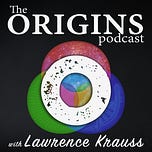Wendy Freedman, the former director of the Carnegie Observatories and now distinguished professor at University of Chicago, has been a leading figure in observational cosmology and astronomy for over 30 years. I have known her as a friend and colleague, and have learned much from her over the years, and was very excited to be able to snag her amidst her busy schedule to record a podcast a week or two before the release of a new blockbuster result her team had produced. I am very happy that Critical Mass listeners will be among the first to get the detailed lowdown on the likely resolution of a problem that has been plaguing cosmology for the past decade.
In the 1990’s Wendy led a major international team of astronomers in carrying the Hubble Space Telescope Key Project. The Hubble Space Telescope (HST) was named in part because of this project, to establish the distance scale of the universe and measure its current expansion rate, a quantity not coincidentally called the Hubble Constant, first measured by Edwin Hubble in 1929.
Since that time, different groups have measured this most important single observable in our universe and gotten widely different values. In the 1980’s and early 90’s two different groups got values that differed by a factor of 2, even though each claimed errors of less than 10%. In 2001, Freedman’s team published their result, truly accurate to 10%, and the value, perhaps not surprisingly, fell right in the middle between the previous two discrepant values.
All was good, until inferences based on the Cosmic Microwave Background, the most precise observable in modern cosmology suggested that measurements at a time when the universe was 300,000 years old, when extrapolated forward using the best current theory of cosmology today, would give a value that different from the HST value.
The difference was statistically significant, and as time proceeded, and error bars got smaller, the discrepancy between the HST (and then the James Web Space Telescope (JWST)) measurement, and the CMB measurement got more significant. Was our current model of cosmology simply wrong?
Such was the claim in various places over the past few years. Most recently, Wendy led a team to measure cosmic distances in 3 different ways using JWST, and as she describes in our discussion, it looks like the problem may now be solved, although not without leaving other mysteries.
We talked about a lot more than this though. Wendy’s background, what got her into astronomy, her experiences throughout her career, and her leadership in a new project building the Giant Magellan Telescope, what will be the largest telescope in the world in Chile.
The discussion was as fun as it was exciting. Wendy is a wonderful popular expositor, and as always, I really enjoyed talking to her. Tune in to hear, for the first time, about the newest and most important recent result in cosmology from one of my favorite colleagues and a world class scientist.
As always, an ad-free video version of this podcast is also available to paid Critical Mass subscribers. Your subscriptions support the non-profit Origins Project Foundation, which produces the podcast. The audio version is available free on the Critical Mass site and on all podcast sites, and the video version will also be available on the Origins Project YouTube.






Share this post